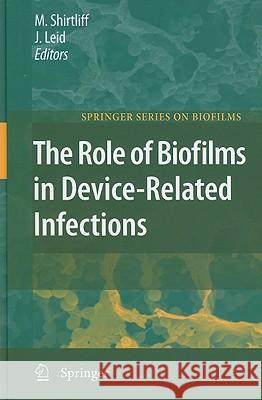The Role of Biofilms in Device-Related Infections » książka
The Role of Biofilms in Device-Related Infections
ISBN-13: 9783540681137 / Angielski / Twarda / 2009 / 272 str.
Approximately 60% of all hospital-associated infections, over one million cases per year, are due to biofilms that have formed on indwelling medical devices. Device-related biofilm infections increase hospital stays and add over one billion dollars/year to U.S. hospitalization costs. Since the use and the types of indwelling medical devices commonly used in modern healthcare are continuously expanding, especially with an aging population, the incidence of biofilm infections will also continue to rise. The central problem with microbial biofilm infections of foreign bodies is their propensity to resist clearance by the host immune system and all antimicrobial agents tested to date. In fact, compared to their free floating, planktonic counterparts, microbes within a biofilm are 50 - 500 times more resistant to antimicrobial agents. Therefore, achieving therapeutic and non-lethal dosing regimens within the human host is impossible. The end result is a conversion from an acute infection to one that is persistent, chronic, and recurrent, most often requiring device removal in order to eliminate the infection. This text will describe the major types of device-related infections, and will explain the host, pathogen, and the unique properties of their interactions in order to gain a better understanding of these recalcitrant infections.











